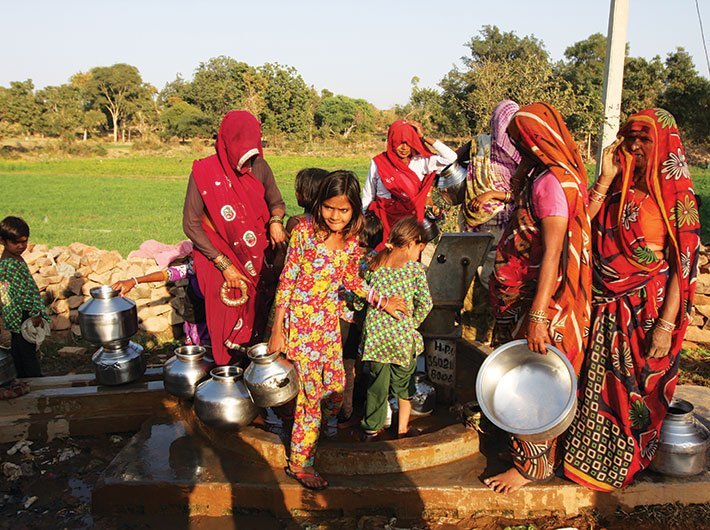Goa, Telangana, Haryana, A&N Islands, Dadra & Nagar Haveli and Daman & Diu and Puducherry have provided connections to all households
Since August 2019, Government of India, in partnership with States, is implementing Jal Jeevan Mission (JJM) to make provision of potable tap water supply every rural household by 2024.
As many as 6.70 crore households have been provided with tap water connections in the 35 months, since August 2019, when the Jal Jeevan Mission (JJM) was launched to make provision of potable tap water supply every rural household by 2024.
Thus, as on August 3, out of 19.11 crore rural households in the country, around 9.93 crore (51.99%) households are reported to have tap water supply in their homes.
At the time of the announcement of the Jal Jeevan Mission, 3.23 crore rural households were reported to have tap water connections.
A number of steps have been taken to plan and implement JJM in the whole country with speed, which includes joint discussion and finalization of annual action plan (AAP) of States/ UTs, regular review of implementation, capacity building and knowledge sharing through workshops/ conferences/ webinars and field visits by a multi-disciplinary team to provide technical support, etc., minister of state for Jal Shakti Prahlad Singh Patel said in a written reply in Rajya Sabha Monday.
A detailed Operational Guideline for the implementation of JJM; Margdarshika for Gram Panchayats & VWSCs to provide safe drinking water in rural households and Guidelines on a special campaign to provide piped water supply in anganwadi centres, ashramshalas and schools have been shared with States/ UTs, to facilitate planning and implementation of Jal Jeevan Mission. For online monitoring, JJM–Integrated Management Information System (IMIS) and JJM–Dashboard has been put in place. Provision has also been made for transparent online financial management through Public Financial Management System (PFMS).
So far, States of Goa, Telangana, Haryana and Union Territories of A&N Islands, Dadra & Nagar Haveli and Daman & Diu and Puducherry have reported to provide tap water connection to all households. The State/ UT, district & village-wise status of tap water connection in rural households etc. as reported by States/ UTs is in public domain and available on JJM dashboard at:
https://ejalshakti.gov.in/jjmreport/JJMIndia.aspx
The state/ UT-wise details are at Annexure: https://pib.gov.in/PressReleasePage.aspx?PRID=1849819
Changes after implementation of jal jeevan mission
Furthermore, as reported by States, out of around 16.97 lakh rural habitations in villages across the country, 16.71 lakh (98.5%) habitations have provision of potable drinking water with sources at a reasonable distance. 0.26 lakh (1.5%) habitations have water quality issues in the water source.
Pure Drinking Water Connection under Jal Jeevan Mission
To instill the ‘sense of ownership’ among rural masses, under Jal Jeevan Mission, there is a provision of community contribution in the form of cash and/ or kind and/ or labour, to the extent of 5% of the cost of in-village infrastructure in case of North Eastern & Himalayan States, forested/ hilly areas, SC/ ST dominated villages and 10% in rest of the areas. Further, willingness of the community and contribution from at least 80% households of the village is a pre-requisite for taking up water supply scheme and Gram Panchayat and/ or its sub-committee, i.e. Village Water & Sanitation Committee/ Paani Samiti/ User Group, etc. may exempt individual contribution from poor, infirm, divyangjan or widow with no source of steady income. The per family contribution varies from village to village and is arrived at on the basis of the capital cost of in-village infrastructure of the scheme.
In addition, after successful commissioning of the scheme, the community would be rewarded to the tune of 10% of the cost of in-village infrastructure, which would serve as revolving fund to meet any unforeseen expenditure due to major break down, etc. thereby assuring continuous water supply.
Further, under the mission, 30% weightage is assigned for difficult terrains which inter alia include areas under Desert Development Programme (DDP) and Drought Prone Area Programme (DPAP) while allocating the fund, to prioritize the coverage in these areas.
